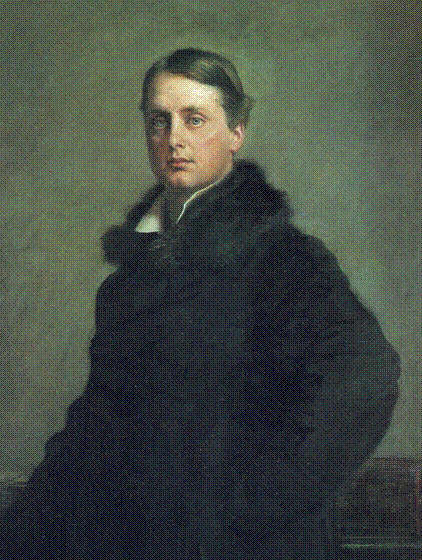Cheers
Speech at Chesterfield (16 December 1901), reported in The Times (17 December 1901), p. 10.
Famous Archibald Primrose, 5th Earl of Rosebery Quotes
Life of Pitt (1891), reported in Bartlett's Familiar Quotations, 10th ed. (1919).
Speech to the City Liberal Club (19 July 1901), reported in The Times (20 July 1901), p. 15.
Cheers.
Speech at Chesterfield (16 December 1901), reported in The Times (17 December 1901), p. 10.
“This is not a Budget, but a revolution; a social and political revolution of the first magnitude.”
Letter to the The Times attacking the "People's Budget" (22 June 1909), p. 8.
Speech to a meeting at St James's Hall on behalf of the Progressive majority in the London County Council (21 March 1894), reported in The Times (22 March 1894), p. 7.
Archibald Primrose, 5th Earl of Rosebery Quotes about the world
Address as President of the Birmingham and Midland Institute (15 October, 1901).
'Lord Rosebery On National Culture', The Times (16 October, 1901), p. 4.
Speech to the Liberal League on 12 June 1903, repudiating Chamberlain's proposals, reported in The Times (13 June 1903), p. 8.
Cheers.
Speech at Chesterfield (16 December 1901), reported in The Times (17 December 1901), p. 10.
Cheers.
Speech to Glasgow University (12 June 1908), reported in The Times (13 June 1908), p. 12.
Archibald Primrose, 5th Earl of Rosebery Quotes
Letter to Strachey (19 October 1921), quoted in Leo McKinstry, Rosebery: Statesman in Turmoil (John Murray, 2006), p. 526.
Loud cheers.
Speech in Glasgow attacking the "People's Budget" (10 September 1909), reported in The Times (11 September 1909), pp. 7-8.
“[The British Empire is] the greatest secular agency for good now known to mankind.”
Speech at the unveiling of a bust of the late Canadian Prime Minister Sir John Macdonald at Westminster Abbey (16 November 1892), reported in The Times (17 November 1892), p. 9. Leo McKinstry, Rosebery: Statesman in Turmoil (John Murray, 2006), p. 120.
Speech to the Burnley chamber of commerce (19 May 1903) in the aftermath of Joseph Chamberlain's speech advocating Imperial Preference tariffs on imports, as reported in The Times (20 May 1903), p. 12. The Times reported Rosebery's speech in third person.
Speech at Chesterfield (16 December 1901), reported in The Times (17 December 1901), p. 10.
Upon the fall of his ministry; said to journalist Sir Henry William Lucy, The Diary of a Journalist (Vol. 1), E. P. Dutton, 1920), p 93.
Letter to Lord Stamfordham, the King's secretary (20 February 1924), quote in Leo McKinstry, Rosebery: Statesman in Turmoil (John Murray, 2006), p. 526.
Letter to Sir George Murray (27 July 1907), quoted in McKinstry, pp. 499-500.
Letter to Canon Scott Holland (21 August 1895), quoted in D. A. Hamer, Liberal Politics in the Age of Gladstone and Rosebery: A Study in Leadership and Policy (Oxford University Press, 1972), p. 223.
“It is beginning to be hinted that we are a nation of amateurs.”
Rectorial Address, Glasgow (November 16, 1900), reported in Bartlett's Familiar Quotations, 10th ed. (1919).
